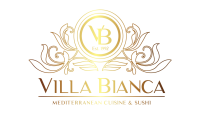July 11, 2025
Vergenoegd Löw Wine Estate, South Africa
This old farm, a tapestry woven with the threads of families and hard work, stands as a proud reminder of the lives connected to the land. Stepping onto this wine estate is like walking into a living history book. Every vine and weathered stone whispers tales of generations past.
The thoughtfully crafted itinerary ensured that every moment of my stay would be meaningful, and I felt honoured by the care that went into making my short time there so special.
As I walked into my Cape Dutch-style gabled cottage, I was struck by how effortlessly everything connected to the landscape outside. Set away from the main farm buildings, giving a feeling of staying in a small village, the spacious, elegant, yet naturally blended interior created a rustic charm of contemporary luxury.
Location
At the gateway to Stellenbosch lies Vergenoegd Löw Wine Estate, a special place bathed in serenity, heritage and natural beauty. Dating back to 1696, this wine estate is one of South Africa’s oldest working farms and is where history, heritage and harmony converge.
The allure of this exquisite wine estate is about the magnificent natural surroundings that include mountains, fynbos, rivers and oceans. The estate has views of Table Mountain and the mountains of the Helderberg, which make for beautiful backdrops from every angle. The Vergenöegd Löw wine estate is located along the Stellenbosch Wine Route, less than an hour from the city centre of Cape Town and its international airport. It is located about five kilometres from the Atlantic Ocean and the sandy beaches of Somerset West. As the farm is located on a plain that opens to the nearby ocean, the chilly water from the South Pole and the warm landmass cause high winds that blow onshore during the day and offshore at night. These “blow dry” the grapes and prevent the formation of fungi. The high salt content in the air also has an antiseptic effect.
About Vergenöegd Low wine estate
A recent addition to the prestigious European Heritage Project collection, a prestigious collection of privately owned estates, with properties also in Italy, Germany, and Malta. The charm of this historic wine estate is multi-faceted and the unassuming way that the farm works in harmony with the rhythms of the earth and its seasons to create some of the best grapes and wines imaginable, and it is about timeless elegance.
The impressive gardens highlight indigenous flora and striking Dylan Lewis sculptures, providing a peaceful spot for leisurely walks and views of the mountains. With a focus on sustainable viticulture, the vineyards have been carefully replanted to optimise grape quality, with varietals such as Cabernet Sauvignon, Merlot, Chardonnay and Semillon thriving in the unique soil composition enriched with ancient sea fossils. Committed to eco-sustainability and conservation, Vergenoegd Löw is a premier wine tourist destination and a recognised WWF Conservation Champion for its dedication to preserving indigenous habitats and practising environmentally conscious farming practices.
What does the word Vergenoegd mean?
Translated, the Dutch word “vergenoegd” means “contented,” “satisfied,” or “pleased”.
Dutch settler Pieter de Vos named his new farm in the Cape Colony in 1696 after receiving a land grant from the Dutch East India Company. The name reflects the contentment he felt with his new property, which was known for its fertile soil.
Experiences
Vergenoegd is not just another wine farm. It is unique in that it offers more than ordinary wine-tasting experiences and contemporary meals, inviting guests to explore the world of wine in an utterly unique way.
We realised that the farm encourages day visitors to come and explore the property and enjoy all it has to offer. It is therefore not only a 5-star luxury boutique hotel getaway but a special experience for everyone.
There is so much to see and do, making for a delightful day outing with a range of activities for visitors of all ages.
As there are so many experiences and meanderings to consider, here is a brief insight as to what is available:
Wine Tasting: The estate produces a range of award-winning wines that reflect the terroir of the region. Sample the full range of wines on the estate- in the Homestead Wine Lounge or on the porch overlooking the homestead gardens.
Indigenous Food and Wine Tasting: Engage your senses with a unique tasting experience that pairs local flavours like bokkoms and biltong with wines.
Art Walk: Explore the estate’s gardens and art walk, featuring the powerful bronze sculptures by Dylan Lewis, blending human and animal forms.
Duck Parade: Witness the daily duck parade, where a flock of prizewinning Indian Runner ducks waddle across the grounds at 9 am and 12 pm. More than 1,500 ducks are herded into the vineyards daily.
Dining: Enjoy farm-to-table cuisine at Geuwels restaurant or indulge in fine dining at Clara’s Barn Restaurant, located in one of the estate’s oldest buildings, both offering Cape Heritage cuisine.
Luxury Spa: Relax and rejuvenate at the estate’s spa, which offers a range of treatments. Indulge in rejuvenating treatment, including couples’ massages and milk baths.
Labyrinth & Puzzle Maze: Explore the meditative labyrinth and the challenging puzzle maze designed for contemplation and relaxation.
Gardens: Stroll through the landscaped gardens, discover the fragrances of various plants, and spot local birdlife. The estate offers a serene and picturesque escape from the city, with beautiful gardens and views.
Vintage Room: View the vintage car and learn about the estate’s history in the Vintage Room.
Estate chapel: Valentina’s chapel is a sacred space on the estate that seats 120 guests and is a lovely place to visit.
Concerts & Performances: The estate regularly organises specialised events, including food and wine pairings, and occasionally hosts live concerts and poetry readings in the estate’s chapel.
Illustrious History
Significantly, the farm is 329 years old, dating from 1696 and built in the historic Cape Dutch style and is one of the oldest representations of the early Dutch settlement history in South Africa.
Since Pieter de Vos first acquired the land, the farm has produced grapes and wine. The farm underwent several changes in ownership, with the Faures family holding it for six generations between 1820 and 2015.
Championing change
In 2015, Professor Dr Dr Peter Löw, a German historian, entrepreneur, philanthropist and chief curator of the European Heritage Project, purchased the neglected property. He found a complex of early buildings that, although dilapidated, were still largely intact. Everything he encountered led him to believe the property had all the potential to produce great wines, to offer high-end dining and hospitality and a range of intriguing experiences. He sensed the farm’s rich heritage, cultural and viticultural potential, and his vision has been to restore the estate, bringing it back to life not only for today’s world but for the future too.
Under his leadership, the priority has been to sensitively restore the heritage buildings and to replant the vineyards with a focus on sustainability and contemporary tastes.
Richly Restored
The magnificent old homestead is a Cape Dutch structure characterised by its graceful gables, thatched roof and symmetrical design, dating to 1773 and has been carefully restored.
Also recently restored is the ancient barn, which is one of the oldest barns in the Western Cape, South Africa and predates the historic 1773 homestead. The barn now houses the superb fine dining restaurant, named Clara, honouring the estate owner’s wife. Both the Homestead and Clara’s Barn imbue the estate with elegance and grace.
Both are a key part of the European Heritage Project as their historical value as an early representation of Dutch settlement in South Africa is vital.
Cellar-door tastings
Tasting Vergenoegd Löw wines on site makes for a unique and memorable experience. Understanding the distinct terroir, climate conditions, cultivar selection, harvesting, crushing, fermenting and how the wine develops in concrete, steel holding tanks or oak barrels provided a greater appreciation for the wine in my glass.
In the old-world homestead, we were privileged to have oenologist, Vusi Dailcuba, spend an hour introducing us to award-winning wines from this distinctive terroir – cool coastal climate, low altitude, and lime-rich soils. Their collection of exceptional wines reflects a balanced, mouth-filling flavour of fruit and an echo of the sea that is satisfyingly refreshing.
The cellar, built from aged wood and stone, reflects generations of winemaking tradition and is now managed by Elsenberg-trained Vusi Dalicuba and vineyard specialist Corius Visser. Their winemaking approach is “follow the grapes”- in this land above-hand approach, the grapes themselves dictate how the berries should be vinified, and this creates wines that dazzle the palate with freshness, fragrance and a refined structure. The superb Cabernet Sauvignon, Merlot, Chardonnay and Cap Classique vintages are well worth lingering over.
Vusi Dalicuba was thrilled and still beams after winning the VinLog Merlot Trophy at the prestigious 2024 Michelangelo International Wine & Spirits Awards, for his 2022 Vergenoegd Löw Amalie Merlot and for being awarded a gold medal for his 2022 Vergenoegd Löw Lara Cabernet.
The estate’s tasting room offers a selection of wines that highlight the best of South African terroir, from robust reds to crisp whites, accompanied by delectable food pairings. Whether visitors are seasoned sommeliers or casual wine drinkers, the knowledgeable staff is eager to share their expertise and help find the perfect wine to suit each palate.
Luxury Accommodation
The serene nature-infused atmosphere of the estate makes it an appealing Winelands base. Guests can choose from a variety of 5-star lodgings and relax in the exclusive Homestead lounge for afternoon tea or drinks by the fire.
The estate’s heritage seamlessly blends charm with modern comforts, and this is reflected in the design and atmosphere of the accommodation, which comprises four deluxe rooms, four vineyard suites, six luxury cottages, and an exceptional presidential suite. The owner’s villa is available for rent upon request.
We so enjoyed our freestanding thatched, Cape Dutch style cottage as it gave a more private experience, as the group of cottages is nestled at the far end of the vineyard, separated from the main farm and public activities.
Runner ducks, Regenerative farming and Sustainability
From the moment we set foot on the Estate, it was clear that sustainability is not just a catchword but a deeply ingrained value at the heart of all activities and guest experiences. The hotel grounds are a car-free zone, and guests are driven around in the ‘Duck Express’ (a 13-seater electric minibus) or on golf carts around the Estate. Everything from recycling, biodegradable packaging, to solar power and low-water drip irrigation systems plays a significant role.
The farm embraces mixed farming practices and by farming with nature, including the farm’s natural pest control heroes of Indian Runner ducks and Dexter cattle. The waddling, quacking army of pest controllers is on the farm to wander through the vineyards foraging for snails and other insects. They also eat the weeds, and their waste enriches the life in the soil. The Dexter cattle are not just livestock: they are vital contributors to the estate’s unique approach to winemaking. Dexters help with pest control, soil health and even add to the quality of the wine by eating the waste from the winemaking process.
The cover crops, planted between the vineyard rows, are also part of the integrated pest management programme as they attract pollinators and other insects that devour vineyard pests. They also help to control soil temperatures and moisture while capturing carbon and binding nitrogen to the soil.
The farm is also home to the critically endangered Cape Flats Sand Fynbos, so thanks to its natural abundance and beauty, coupled with its rich heritage, this estate has become a dynamic, evolving national monument.
WWF Conservation Champion
A proud WWF Conservation Champion, Vergenoegd Löw is a regenerative enterprise where all cultivation focuses on building soil health, climate resilience and biodiversity. Together with experts, the project is committed to sustainable agriculture and the preservation of biodiversity by protecting natural landscapes. Nature is now valued in local culture, with water and energy being used more efficiently.
All wine farm processes aim to minimise environmental impact. This starts with a deep respect for the land and every creature that calls it home. All processes such as recycling, creating biodegradable and recyclable packaging, utilising solar electricity, composting, and utilising low-water drip irrigation systems from the water treatment plant on site, have earned the farm the honour of WWF Conservation Champion status and IPW (Integrated Production of Wine) biodiversity certifications.
Come and indulge in the beauty, taste the excellence and embrace the spirit of Vergenoegd Löw. This is where the past, present, and future of winemaking meet. With award-winning wines crafted with passion and precision, it is more than a wine estate; it is a journey for the soul, where history whispers, nature thrives, and wine elevates the senses.
Discover Clara’s Barn and the tranquillity of Vergenoegd Löw. Book your table or stay here.
Written by Diane McLeish for Luxuria Lifestyle International






